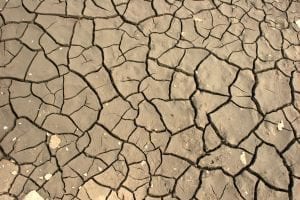Climate change will amplify existing stress on water availability in Africa, a new IPCC report has found.
Water resources are subjected to high hydro-climatic variability over space and time, and are a key constraint on the continent’s continued economic development. The impacts of climate change will be superimposed onto already water-stressed catchments with complex land uses, engineered water systems, and a strong historical socio-political and economic footprint, the report states. The Climate Change 2014 report released by the Intergovernmental Panel on Climate Change (IPCC) advises that strategies which integrate land and water management, and disaster risk reduction, within a framework of emerging climate change risks are needed to bolster resilient development in the face of projected impacts of climate change. Several studies from Africa point to a future decrease in water abundance due to a range of drivers and stresses, including climate change in Southern and northern Africa. For example, all countries within the Zambezi River Basin could contend with increasing water shortages, although non-climate drivers such as population and economic growth, expansion of irrigated agriculture, and water transfers are expected to have a strong influence on future water availability.In Zimbabwe, climate change is estimated to increase water shortages for downstream users dependent on the Rozva dam. Water shortages are also predicted for the Okavango Delta (from both climate change and increased water withdrawals for irrigation), and the Breede River in South Africa. For North Africa it is estimated that in 2050 climate change will account for 22% of future water shortages in the region while 78% of increased future water shortages can be attributed to socioeconomic factors.
In Eastern Africa, potential climate change impacts on the Nile Basin are of particular concern, given the basin’s geopolitical and socioeconomic importance. Reduced flows in the Blue Nile are estimated by late century due to a combination of climate change and upstream water development for irrigation and hydropower. Overall, however, the impact of climate change on groundwater resources in Africa is expected to be relatively small in comparison with impacts from non-climatic drivers such as population growth, urbanization, and increased reliance on irrigation. Climate change impacts on groundwater will vary across climatic zones, but changes in rainfall are not expected to impact the recharge of deep aquifers in areas receiving below 200 mm rainfall per year, where recharge is negligible due to low rainfall.






